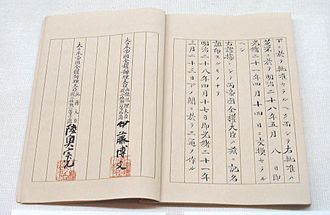From Tokyo & To Tokyo
Truth of Korea
Around the 3rd century BC, Korea (Wiman Joseon) became a tributary to China (the Hang Dynasty).
Since then, till the Empire of Japan defeated China (Qing) in the Japanese-Sino War in 1895, Korea had been a tributary country to China without interruption.
After Yi Dan(Yi Seong-gye or Taejo)defeated the Goryeo Dynasty and founded his own dynasty in the Korean Peninsula in 1392, he was asked whether the name of the kingdom of Korea would be changed from Goryeo by the emperor of China (the Ming Dynasty). As the suzerain over Korea, the emperor of Ming (the Hongwu Emperor) requested a prompt answer from Taejo, the virtual king of Korea.
So, Taejo humbly asked the Hongwu Emperor of Ming to choose one of two for the new name of his kingdom: Joseon (Chosen in Japanese) or Wanei (in Japanese). The Chinese emperor reasonably chose the former as the latter was already used as a name of other tributary, so that Taejo became formally Taejo of Joseon or King of Joeson and his kingdom came to be called the Joseon Dynasty. Joeson means tranquility in the morning.
Yet when the Empire of Japan defeated China (the Qing Dynasty) in 1895, Korea lost the status of a tributary or got independent from China as Japan and Qing concluded the Treaty of Shimonoseki:
Treaty of Shimonoseki
Article 1: China recognizes definitively the full and complete independence and autonomy of Korea, and, in consequence, the payment of tribute and the performance of ceremonies and formalities by Korea to China, that are in derogation of such independence and autonomy, shall wholly cease for the future.Japan-China Peace Treaty, or "Treaty of Shimonoseki", 17 April 1895.
So, Korean people owe Japan forever for their independence from China at least psychologically, though they had to obey and be annexed to the Empire of Japan half a century later due to their incompetence in its building a modern nation to cope with invasion by the Russian Empire and other Western Powers.
Anyway, though Qing had put all the nations in the east of India into the state of a tributary to China, except Mughal Empire and Japan, it lost those tributaries one after another. In the late 19th century, China had finally only one tributary Korea. And it lost it as a consequence of the Japanese-Sino War in 1895. In this context, the war has very significant meaning not only for Korea and China but also for whole East Asia. Because it finally told the end of the tributary system under hegemony of a Chinese empire.
(A Japanese-Sino War battle depicted in a traditional art form by Japanese)
http://blog.goo.ne.jp/rubaiyat_2009/e/399bd2d1093ec650104f444123a81bea
So, it might be no wonder that North Korea is still a kind of tributary to China as the only such nation. And, South Korea never ceases to try to harm Japanese reputation while it owes Japan for its industrial success after WWII. The root is deep in history, since South Korea militarily occupies Japan's Takeshima Island in the Sea of Japan while it knows the rocky island belongs to Japan from older days.
(to be continued...)
*** *** *** ***
Mar 1:20 And straightway he called them: and they left their father Zebedee in the ship with the hired servants, and went after him.
Mar 1:21 And they went into Capernaum; and straightway on the sabbath day he entered into the synagogue, and taught.



